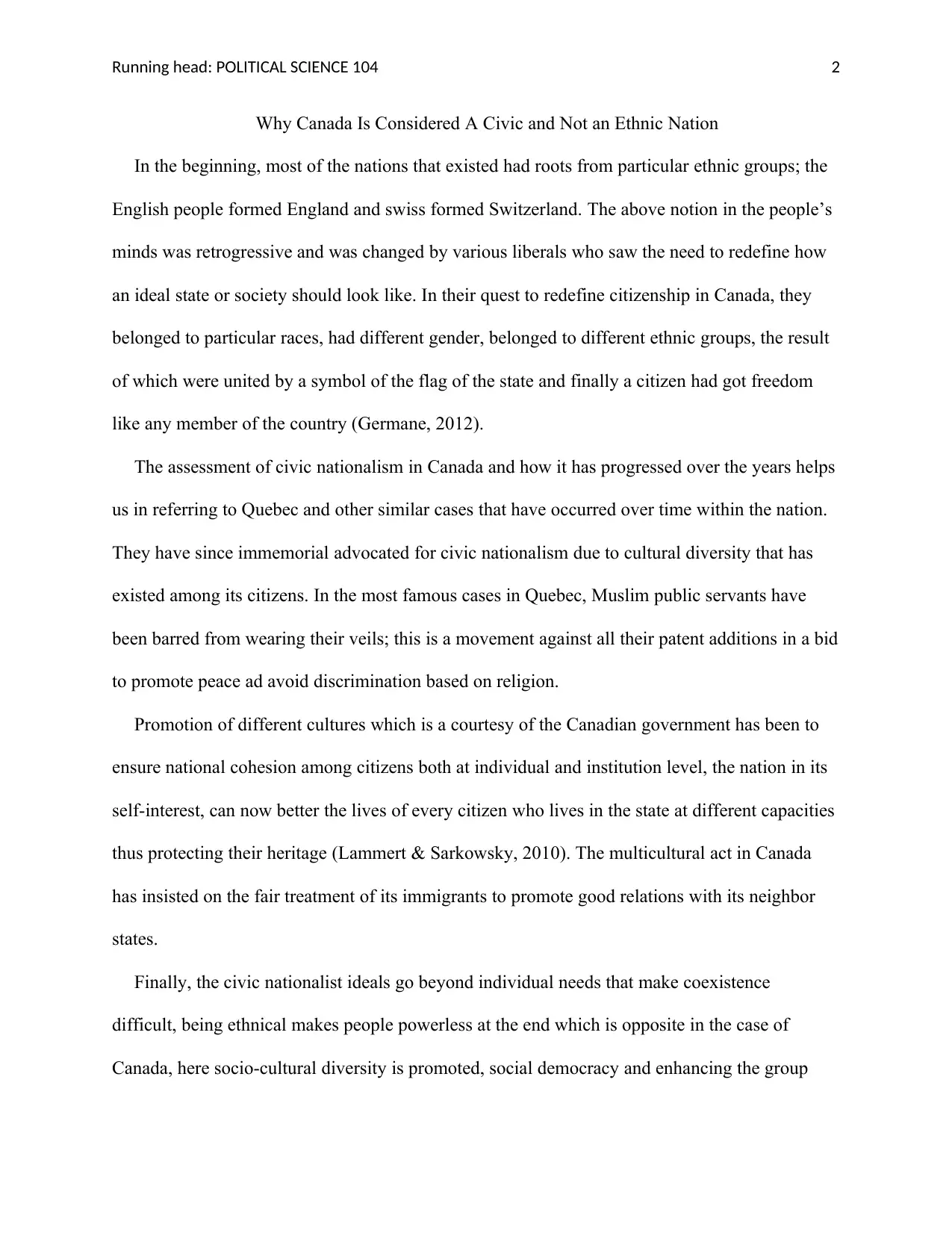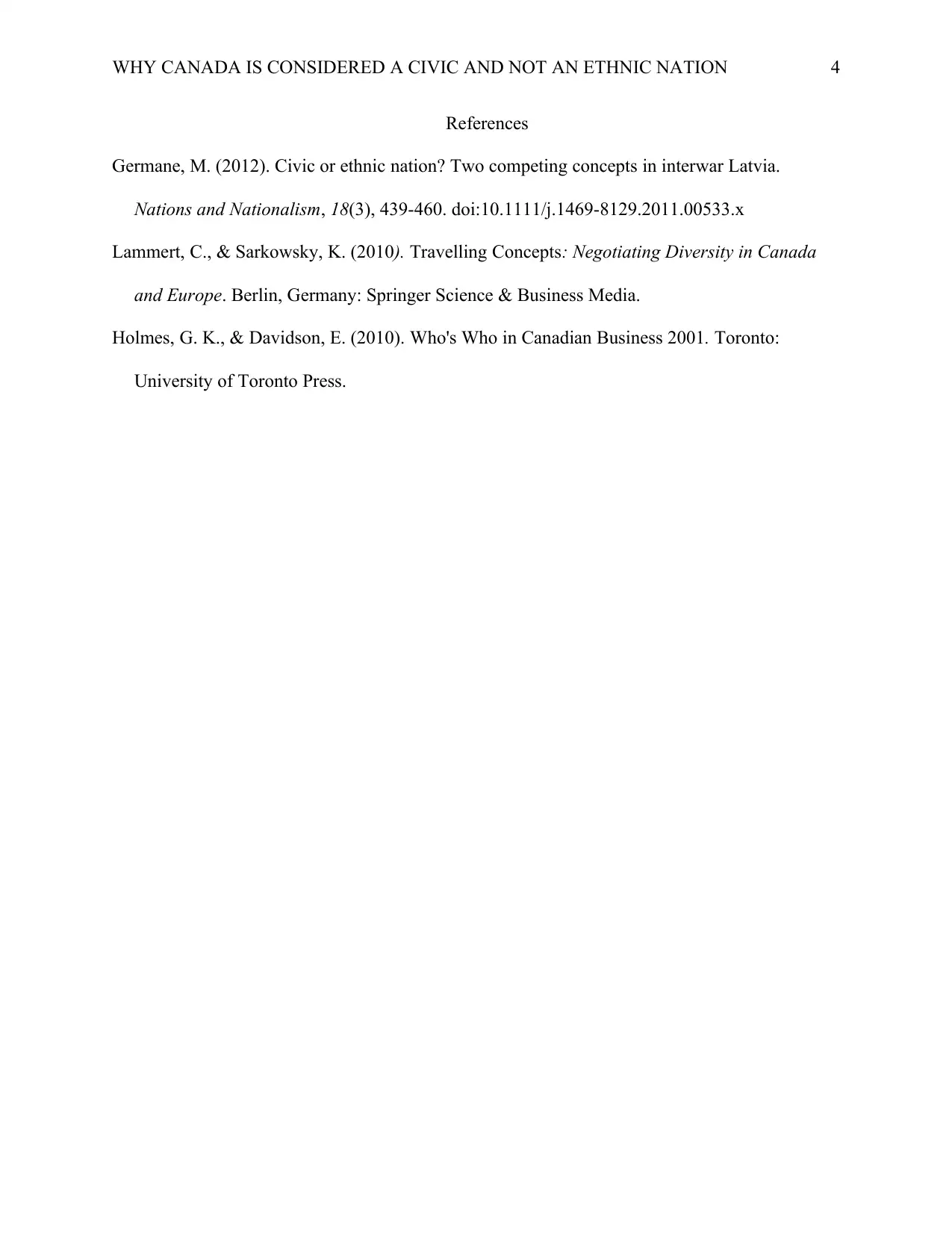Analyzing Canada's Civic Nationalism: A Political Science Essay
VerifiedAdded on 2022/09/30
|4
|499
|27
Essay
AI Summary
This essay delves into the concept of civic nationalism in Canada, contrasting it with ethnic nationalism. It explores how Canada's policies, particularly the Multiculturalism Act, promote cultural diversity and national cohesion. The essay examines the role of the government in fostering a sense of belonging among citizens from diverse backgrounds. It also discusses how the Canadian government's policies protect the heritage of its citizens and promote good relations with its neighbor states. The essay highlights the importance of socio-cultural diversity and social democracy within the Canadian context, emphasizing the nation's commitment to the fair treatment of immigrants and the protection of individual rights, which ultimately supports the claim that Canada is a civic state.
1 out of 4







![[object Object]](/_next/static/media/star-bottom.7253800d.svg)